PNC phishing attack: Many PNC customers have received a message saying that their accounts have been frozen. This is a fake message being circulated by scammers. In this scam, scammers typically send a text claiming to be representatives of PNC Bank and claim that the victim’s bank account has been blocked. The scammers then ask the victim to provide personal and sensitive information, such as account numbers, passwords, and Social Security numbers, to “unblock” the account. This information is then used to steal the victim’s money or commit identity theft. It is important to never provide sensitive information to scammers, and to contact the bank directly to verify the legitimacy of the request.
Here’s an example of a scam text, claiming to be sent from 3246-pnc-financial-services (PNC Bank):
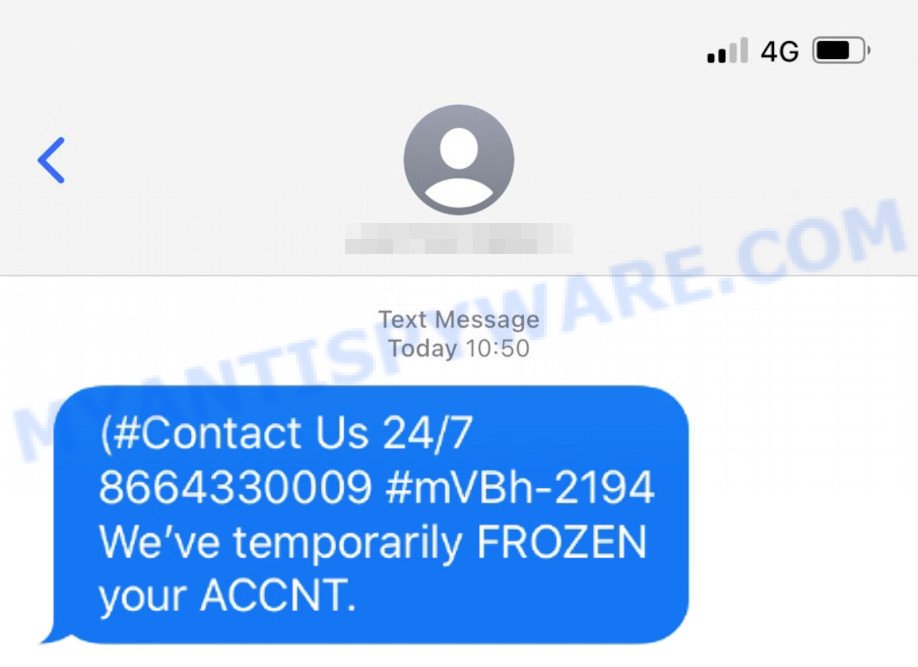
A PNC Scam Text Message:
(#Contact Us 24/7 8665949267 #mVBh-2194 We’ve temporarily FROZEN your ACCNT.
QUICK LINKS
- How Does the PNC Scam Work?
- How to Spot Scams That Mimic the Online Banking Alert?
- What to do when you receive the PNC SCAM text?
- Scammers Phone numbers
- Report a Scam
How Does the PNC Scam Work?
Scammers send messages that mimic texts from banks, also known as “smishing” to trick people into giving away their personal information. They use these fake texts to appear as if they are from a legitimate bank and usually request sensitive information, such as login credentials, Social Security numbers, or credit card details. These scammers use urgency tactics, such as claiming that the victim’s account has been frozen, compromised or blocked, to pressure them into providing the information. It’s important to always be vigilant and never share personal or financial information with unsolicited texts or emails, and to directly contact the bank to verify the authenticity of any suspicious messages.
In this case, scammers use a fake message that claims “We’ve temporarily frozen your account”. This is a classic example of a phishing attempt, where scammers try to trick people into giving away their financial information by posing as a trustworthy entity.
The fake PNC message claims that there is a problem with the recipient’s account, or that account has been frozen, and ask them to call a phone number to resolve the issue. The phone number provided in the text message leads to scammers, who will pose as a bank representative and request sensitive information, such as account numbers, passwords, or Social Security numbers, in order to “unfreeze” the account. The scammers use language and a sense of urgency to create a sense of panic and to pressure the recipient into acting quickly.
It’s important to remember that legitimate banks and financial institutions will never send a text or email asking for sensitive information. If you receive a message like this, it’s best to contact your bank directly to verify its authenticity before taking any action. Additionally, it’s recommended to never click on links or provide sensitive information to unsolicited emails or texts.
To summarize, the PNC Text “We’ve temporarily FROZEN your ACCNT” is a SCAM. It can lead to loss of data, financial losses, theft of personal information and other serious problems.
How to Spot Scams That Mimic the Online Banking Alert
There are always a few details that can give away a scam. Make sure you know what to look out for.
- Unusual sender or number: Scammers often use fake numbers or alter the sender name to make it appear as if the message is from a legitimate bank. Check the sender or phone number carefully and make sure it matches the bank’s official number.
- Urgent language: Scammers often use language that creates a sense of urgency to pressure the recipient into acting quickly. If the text message contains phrases such as “urgent”, “time-sensitive”, or “act immediately”, be wary.
- Request for personal information: Legitimate banks will never ask for sensitive information, such as login credentials, Social Security numbers, or credit card details, through a text message. If the text message requests this information, it is likely a scam.
- Incorrect information: Scammers often make mistakes in their messages. If the text message contains information that is incorrect, such as the wrong account number or bank name, it is likely a scam.
- Unexpected message: If you did not expect to receive a message from your bank, be cautious. Check with your bank directly to verify the authenticity of the message.
Examples of such scams
The PNC Text Scam is just one of the many types of scams that exist. In some emails and text messages, scammers use threats to intimidate and bully a victim into paying, others contain links to malicious files. Security Check Against Your PayPal account Scam, Your Package Cannot Be Delivered text, Geek Squad EMAIL SCAM 2023, Whatsapp Scam, Norton Subscription Has Expired are some of the scams we reported recently.
- Security Check Against Your PayPal account Scam
- Desert Fields Bentons Sofa Scam Text Order Placed Message
- I need to start our conversation with bad news for you Email Scam
- International Parcel Service Scam text
What to do when you receive the PNC Scam text?
We advise everyone who receives this text to follow a few simple steps below.
- Do not believe this message.
- Do not respond to the text message, call scammers back, click on any links, or provide any personal or financial information.
- Contact your bank using the official phone number listed on the bank’s website. Confirm with the bank if they sent the text message and if it is legitimate.
- If there’s a link in the scam text, do not click it, otherwise you could unwittingly install malware or ransomware on your device.
- Report the scam to your bank and to the Federal Trade Commission (FTC) at https://www.ftc.gov/. This can help the authorities take action against the scammers and prevent others from falling victim to the same scam.
- Change any passwords or account numbers that you may have shared with the scammers. Review your bank statements and credit reports for any unauthorized activity.
- If you have paid a scammer, the sooner you act, the better. Use the steps (https://consumer.ftc.gov/articles/what-do-if-you-were-scammed) to try to stop a transaction, get a transaction reversed, or get a refund.
Threat Summary
| Name | PNC Text Scam |
| Type | Phishing, Scam, Social Engineering |
| Fake Claims | We’ve temporarily FROZEN your account” |
| Sender | 3246-pnc-financial-services |
| Scammers phone numbers | 866 433-0009, 866-594-9267, 8664330009, 8665949267 |
| Distribution methods | SMS spam campaigns |
Report a Scam
If you have received a fake PNC bank Alert text or a message that is similar but not the same as the example above, then post it as comment on this article. Please include the telephone number the text came from. This helps us to warn users about current scams, monitor trends and disrupt scams where possible.
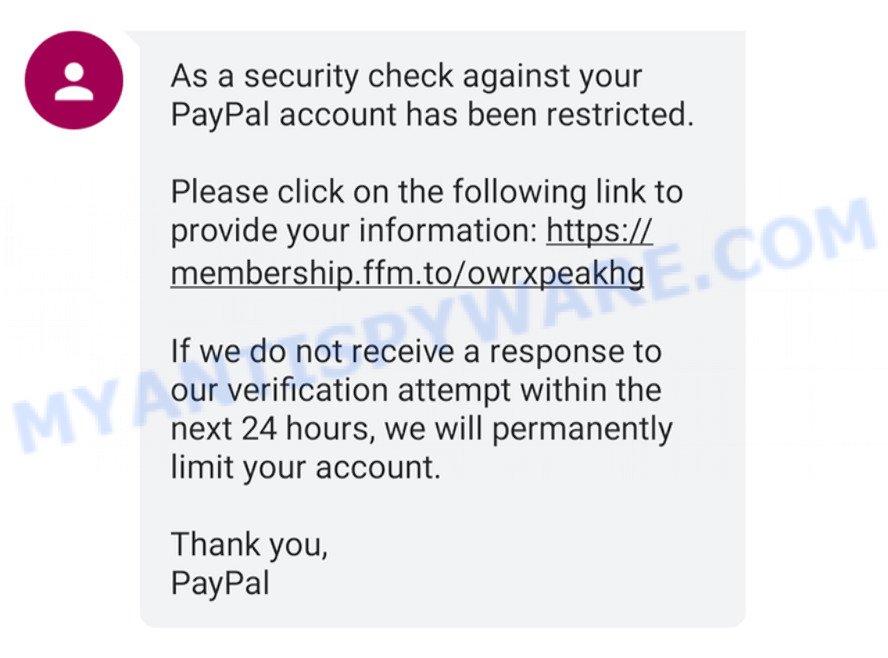
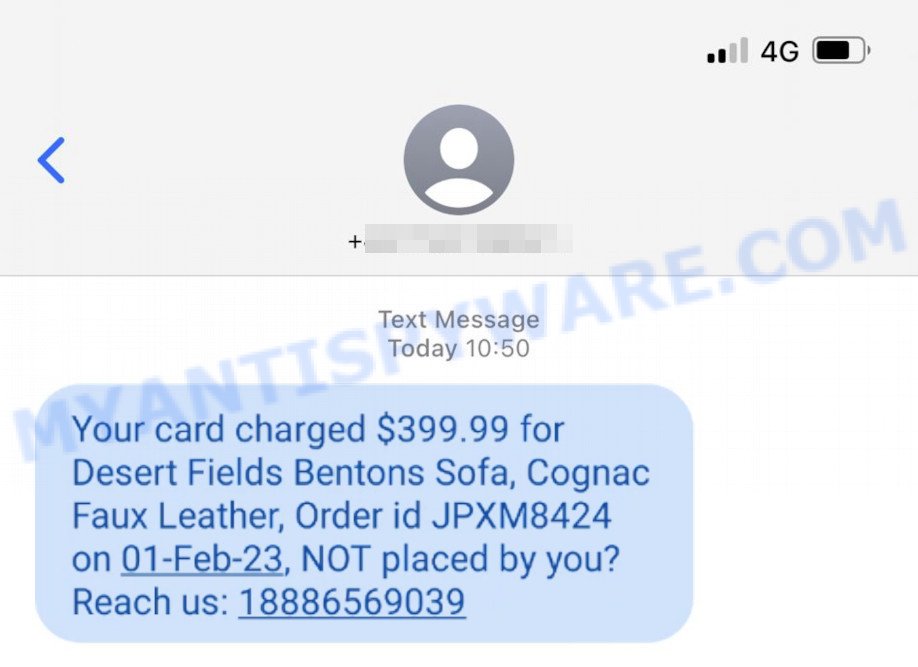
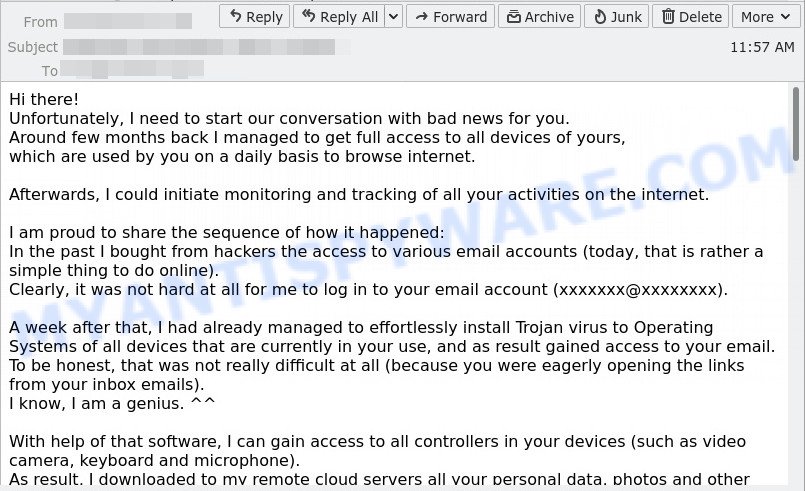
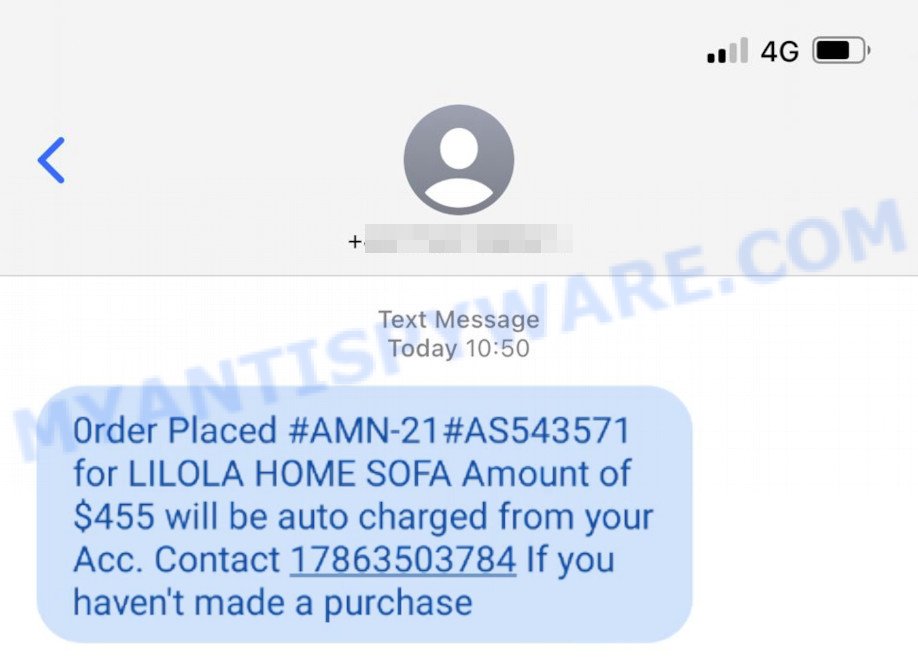
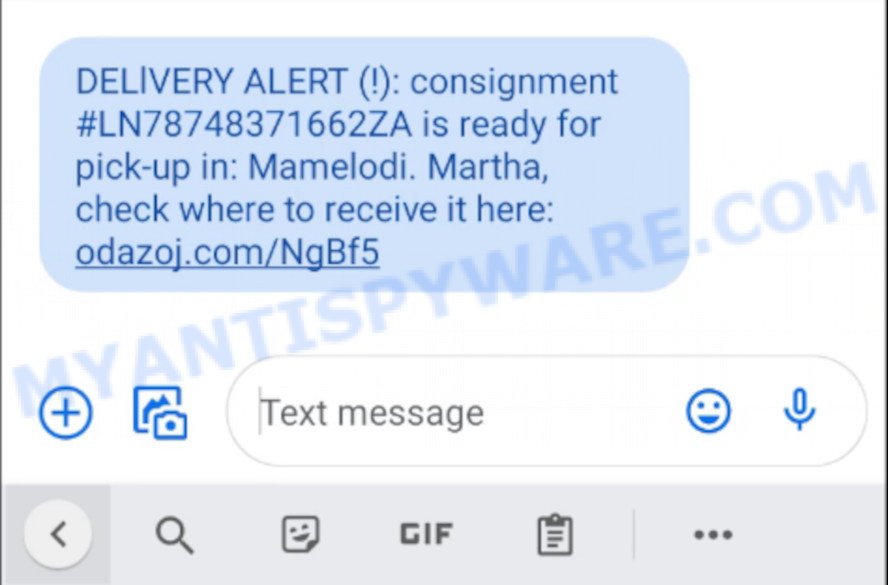

















I checked this TXT by typing phone # into Google and it brought me to your site..Thank You. I sometimes get messages like these in email and what I do to check hit reply and see who it replies to. ity’s not the bank, credit card company etc.